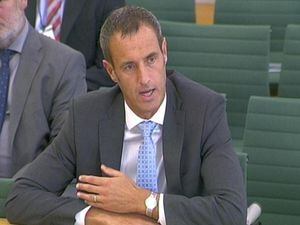Europol chief: Returning Islamic State fighters ‘a top priority’
Around 5,000 to 6,000 EU nationals are thought to have made the journey to join the militant group after its emergence in 2014.

More than 1,000 Islamic State jihadists could try to return to Europe, security chiefs estimate.
Around 5,000 to 6,000 EU nationals are thought to have made the journey to join the militant group after its emergence in 2014.
Around a third of those who travelled may have died in fighting, it is believed, while a similar proportion have already returned to their home countries.
Rob Wainwright, executive director of Europol, the EU’s law enforcement agency, said that leaves a large number who are unaccounted for.
In an interview with the Press Association, he said: “That’s one of the big intelligence questions right now, about where these people are.”
“Have they come back without our noticing? I think that’s unlikely in the main.
“Maybe more have died than we thought.
“Then there’s the final scenario which might be the most convincing, which is that maybe most of them are still there and committed to this cause of martyrdom.”
He added: “We are concerned about it because it’s a large number, it could still be over 1,000.
“They are perhaps capable of coming back and if they do come back they will do so in an even more radicalised state than when they went out, given their exposure to the conflict.
“It’s one of those that is a top priority amongst our community.”
Police in Britain have indicated that, of the UK-linked nationals who made the journey and remain in the region, around 100 could seek to re-enter the country.
Officers have played down the the prospect of all those who are technically eligible to come back doing so.
Mr Wainwright said it was important to have systems in place to ensure each returnee could be identified and assessed.
“You have to have enough intelligence sharing with your European partners to have the latest information about what they were engaged in in Syria and Iraq and what possible motivation they have for coming back,” he said.
Discussing the overall threat, Mr Wainwright said there is an even larger number of “lone actors” in communities in Europe who have not travelled.
He also highlighted IS’s use of technology and social media.
He said: “All these factors point to an evolution in threat from terrorism from something that has always traditionally been seen as a national security issue to something now that is a collective security issue.”
Mr Wainwright said IS’s “star is waning” amid military pressure but, pointing to the continuing threat from al Qaida, he added: “I don’t think we should be celebrating the defeat of international terrorism any time soon.”
The British law enforcement chief, who will depart from Europol later this year, said there has been an “enormous” increase in intelligence sharing between member countries.
Around the time of the Paris and Brussels terrorist attacks in 2015 and 2016, there were about 6,000 intelligence entries in the agency’s systems relating to terrorism – compared with around half a million today.
Mr Wainwright said the European law enforcement community is “as cohesive and joined-up as at any time in the past”.
He added: “We have to make sure, of course, that we can manage Brexit in a way that doesn’t have a major dislocating effect on that cohesion.
“The political will is there. I’m encouraged by the public statements that have been made on different sides.
“I also detect a widespread understanding, recognition of the importance of getting this right.”





